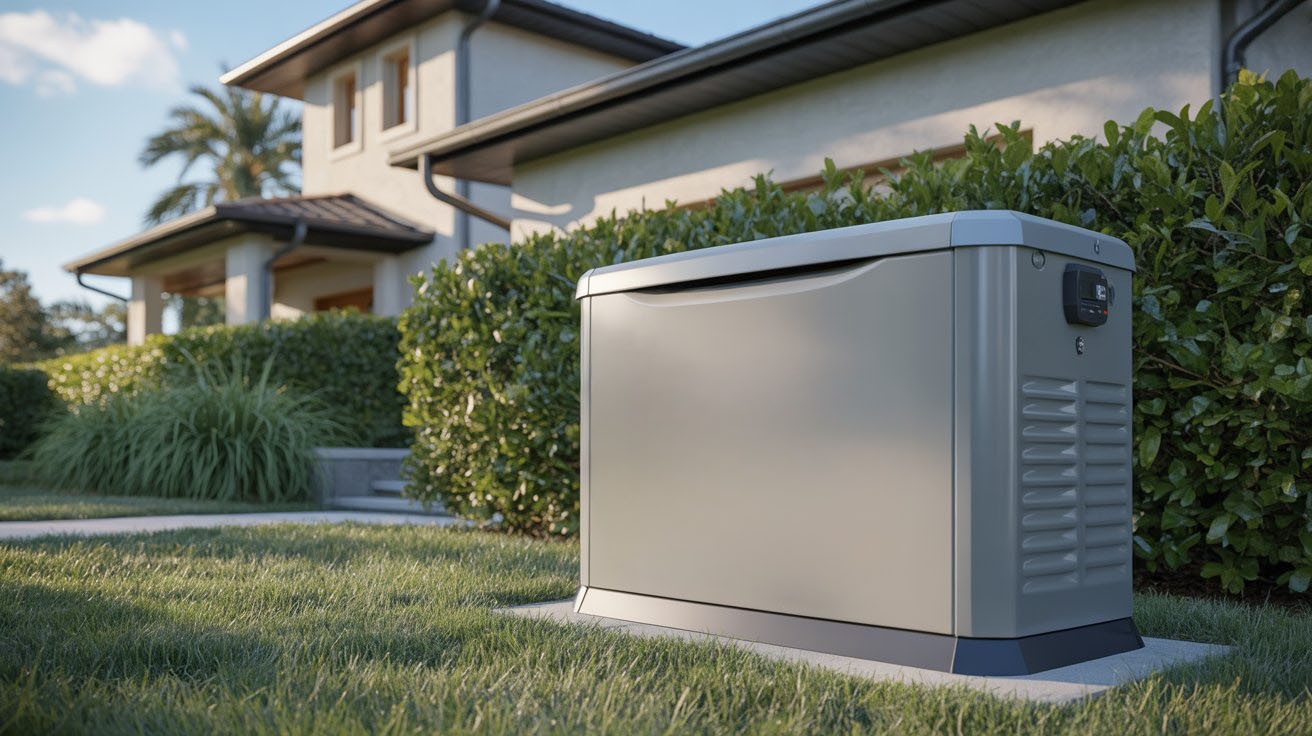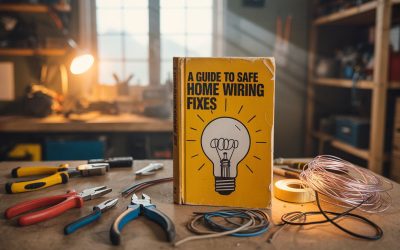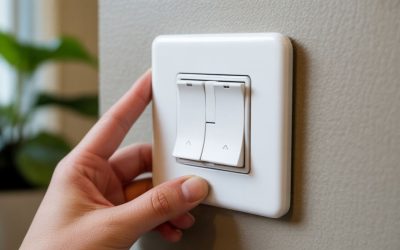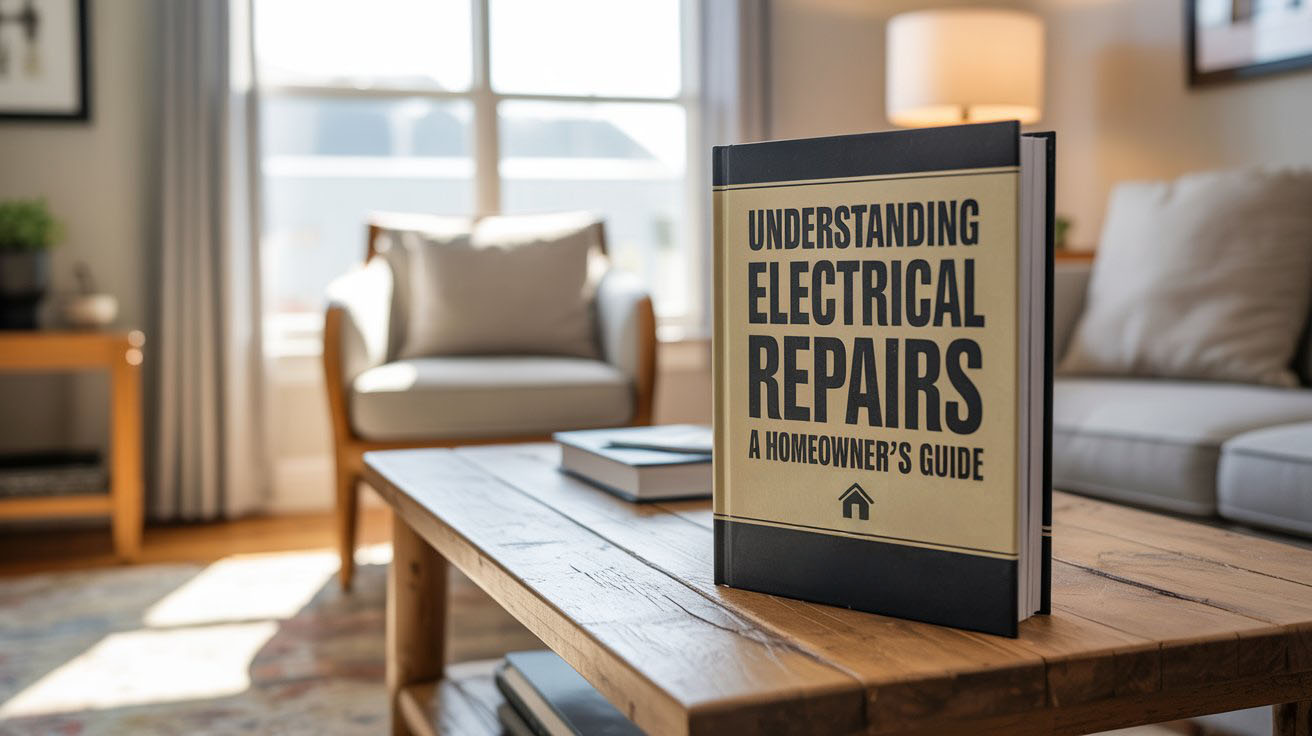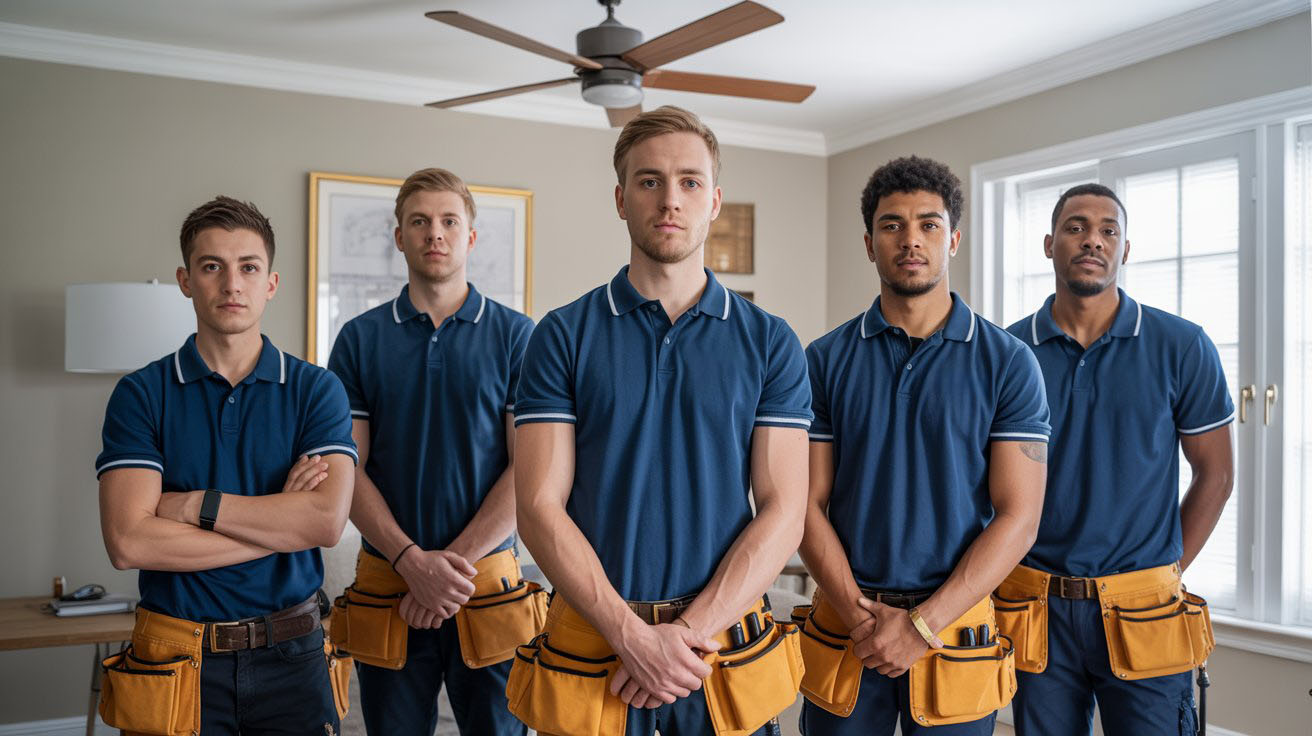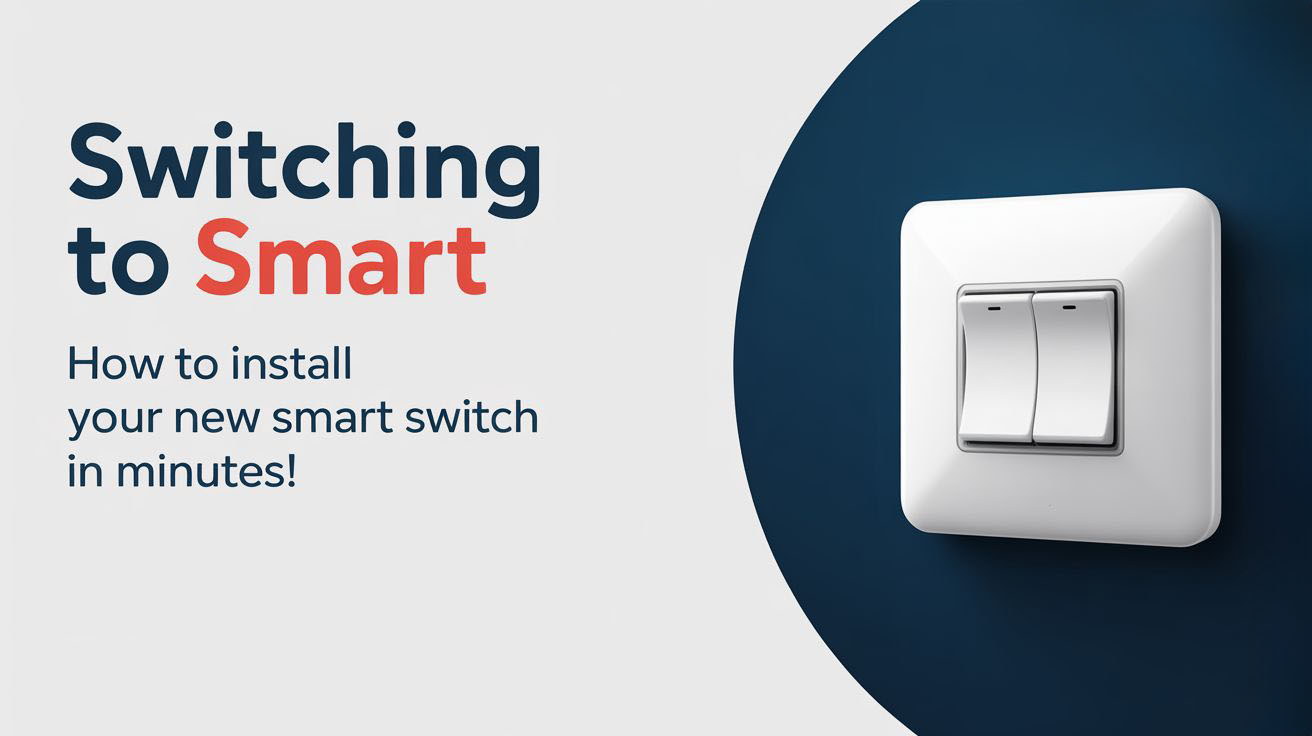Power outages in Tampa can happen fast during storms and hot summer months. A safe, well-sized generator keeps your lights, AC, and fridge running. If you need generator installation in Tampa, this guide explains what to expect and how to stay ready.
Table of Contents
- Why Tampa Homes and Businesses Need Backup Power
- How Generator Installation Works
- Choosing the Right Generator for Your Property
- Permits, Codes, and Inspections in Tampa
- Installation Timeline and What to Expect
- Cost Factors and Value
- Maintenance and Safety Tips in Florida’s Climate
- Related Electrical Upgrades for Reliability
- Summary and Next Steps
- Generator Installation FAQs
Why Tampa Homes and Businesses Need Backup Power
Tampa Bay sees strong storms, lightning, and hurricanes. Outages can last hours or even days in places like South Tampa, Carrollwood, Brandon, and Riverview. A standby generator starts on its own when the power goes out. It keeps key systems on so your home stays safe and comfortable.
Many Tampa homes use Tampa Electric (TECO) for power and Peoples Gas for natural gas. A generator can tie into your natural gas line or use a propane tank. This helps you ride out storms that hit areas like Westchase, New Tampa, and Seminole Heights. With a generator, your fridge, sump pump, well pump, Wi‑Fi, and medical devices can keep running.
How Generator Installation Works
A licensed electrician will check your power needs first. They look at your panel, loads, and fuel source. They also check placement for safe clearance and airflow. This step helps size the unit and plan the job.
Next, your installer handles permits, installs the pad, sets the generator, and wires the automatic transfer switch. After gas or propane is connected, they test the system. You learn how it works and what to do during an outage.
- Site visit and sizing: Review must-run items like AC, fridge, lights, and medical gear.
- Location planning: Choose a spot with safe clearances from windows and doors.
- Permits and utility check: City or county permits and any TECO or gas coordination.
- Pad and placement: Concrete or composite base to support the unit.
- Electrical connection: Transfer switch and wiring to your electrical panel.
- Fuel hookup: Natural gas or propane line sized for the generator.
- Startup and testing: System check, load test, and homeowner walk-through.
Choosing the Right Generator for Your Property
The right size depends on what you want to power. Do you want whole-home backup or just the basics? Your installer can match a size to your needs. They also look at your AC tonnage, well pump, and other big loads.
Fuel choice matters too. Many Tampa homes use natural gas. Propane works well if gas is not on your street. For most homes, a permanent standby unit with an automatic transfer switch gives the best experience.
- Portable vs. standby: Portable units cost less but need manual setup and safe cord use. Standby units turn on automatically.
- Fuel type: Natural gas is easy if available. Propane is common in areas without gas.
- Noise and placement: Choose a spot that meets local rules and keeps neighbors in mind.
- Load management: Smart load-shedding can keep a smaller unit from overloading.
Permits, Codes, and Inspections in Tampa
In Tampa and Hillsborough County, you need permits for electrical and often gas work. The City of Tampa reviews the plan, including the generator location and clearances. After install, inspectors check the electrical and fuel setup. They also review bonding, grounding, and the transfer switch.
Installers follow the National Electrical Code. If you want to learn more, see the National Electrical Code (NEC) from NFPA. Flood zones in parts of South Tampa and near the bay may affect pad height. In some cases, TECO or Peoples Gas may need to upsize meters for larger units.
Installation Timeline and What to Expect
Most projects follow a clear path. First comes the site visit and quote. Then permits are filed. After approval, the team sets the unit, runs the lines, and tests.
The timeline can vary with weather and permitting volume. Supply for some models can also change during storm season. Your installer will set a schedule and keep you updated if changes are needed.
- Week 1: Assessment, sizing, and proposal.
- Week 2–3: Permits submitted and materials ordered.
- Install day: Pad, set, wire, fuel hookup, and startup test.
- Post-install: Final inspections and homeowner training.
Cost Factors and Value
Costs depend on size, fuel type, and how much of the home you power. A whole-home system with a large AC load costs more than a small system that powers only lights, fridge, and outlets. Permits, gas work, and panel updates also affect price.
A safe, code-compliant install protects your home and keeps life moving during storms. Think about what you stand to lose without power. For many Tampa families, keeping the AC and fridge on during a long outage is worth it.
- Generator size: Bigger units handle more loads and cost more.
- Transfer switch: Service-rated automatic switches add reliability and safety.
- Fuel setup: New gas lines or propane tanks add to the budget.
- Site work: Pads, trenching, and long wire runs affect labor.
Maintenance and Safety Tips in Florida’s Climate
Tampa’s heat, humidity, and salt air can wear on equipment. Keep your unit clean and clear of debris. Most units run a weekly exercise cycle. Listen for it and call if you hear anything odd.
Before storm season, test your system and check your propane level if used. Keep the area around the generator clear for airflow. For more tips on safe outage prep, see the ESFI power outage safety tips.
- Monthly check: Look for leaks, rust, or loose panels.
- Annual service: Change oil and filters and test under load.
- Battery care: Test and replace the battery as needed.
- Corrosion control: Rinse salt spray off housing near the bay.
Related Electrical Upgrades for Reliability
A generator is only as strong as the system it feeds. Many Tampa homes benefit from an electrical panel upgrade to support the transfer switch and high loads like AC. This helps with safe load balancing and future needs.
If storms worry you, ask about whole-home surge protection to guard your appliances and electronics during lightning. When you are ready to plan your backup system, learn more about our generator installation and how we size and install units for Tampa homes.
Summary and Next Steps
Backup power gives peace of mind across Tampa, from Ybor City to Westchase and Plant City. With the right size, safe placement, and code-compliant install, your home will be ready when storms hit. A trusted installer can handle permits, fuel, and testing so you feel confident when the lights go out.
Essential Points
- A standby generator turns on automatically and keeps key systems running.
- Tampa permits, inspections, and code rules are part of a safe install.
- Fuel choice and correct sizing make your system reliable in long outages.
- Regular service and a clear area around the unit extend its life.
- Panel upgrades and surge protection improve whole-home safety.
Generator Installation FAQs
Here are answers to common questions Tampa homeowners ask about generators. These points can help you plan your project with less stress.
Frequently Asked Questions
Do I need a permit for a standby generator in Tampa?
Yes. The City of Tampa or Hillsborough County will review electrical and often gas work. Your installer will pull the permits and schedule inspections.
How long does installation take?
Most installs take one to two days on site after permits are approved. The full process may take a few weeks depending on permits, weather, and material supply.
What size generator do I need?
It depends on what you want to power. Your installer will look at AC size, well pumps, and other loads to match the right kilowatt rating to your needs.
Will my generator run on natural gas?
Many Tampa homes use natural gas. If your home does not have gas, propane is a good option. Your installer will size the gas line and check meter capacity.
Is a transfer switch required?
Yes. A transfer switch keeps power from backfeeding into the grid and protects workers and your equipment. It is required by code for a safe setup.
Schedule Your Electrical Service Today
Want a safe, dependable generator for your Tampa home? We handle sizing, permits, fuel, and testing so your family is ready for the next storm. To get a quote and timeline, please contact us and tell us about your home, your panel, and your backup power goals.

